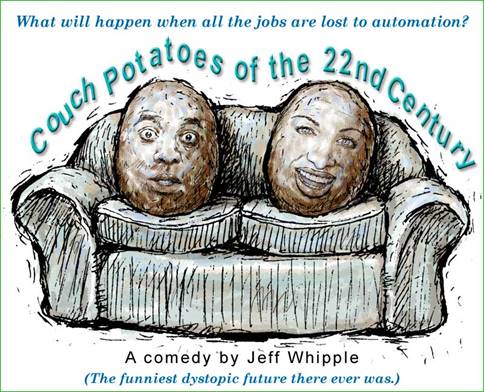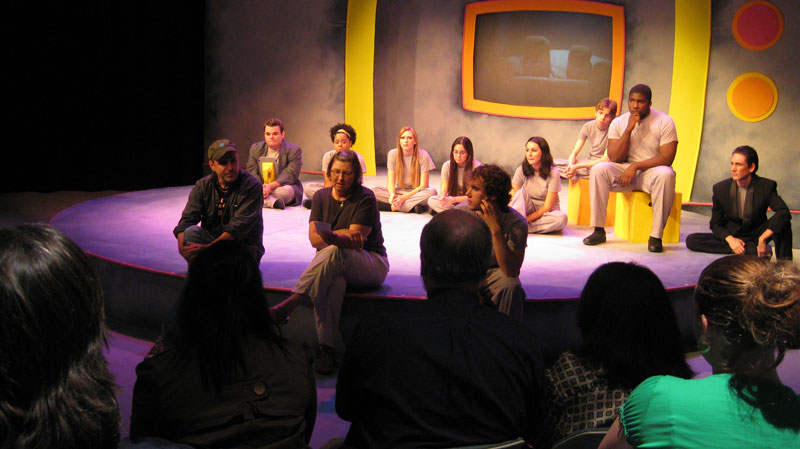![]()

|
70 Years ago… In the 1950s, Henry Ford II, the CEO of Ford, and Walter Reuther, the head of the United Auto Workers union, were touring a new engine plant in Cleveland. Ford gestured to a fleet of machines and said, “Walter, how are you going to get these robots to pay union dues?” The union boss famously replied: “Henry, how are you going to get them to buy your cars?” Today… “It indeed seems possible that, for the first time since the dawn of the Industrial Revolution, technology will eliminate jobs faster than it creates new ones.” “Increasingly, low-skill workers will not only have to compete with each other for jobs at higher wages, but also with computers.” “Our device isn’t meant to make employees more efficient. It’s meant to completely obviate them” “Oxford researchers have forecast that machines might be able to do half of all U.S. jobs within two decades.” “The future without jobs will come to resemble either the cultivated benevolence of Star Trek or the desperate scramble for resources of Mad Max.” “Amazon’s longer-term goal is more fantastical…it wants to escape the messy vicissitudes of roads and humans…it wants to go fully autonomous, up in the sky…retail stores would cease to exist.” “Macy's decision to close 100 stores, is only the latest in a series of downsizing announcements by department-store chains as they see their sales and profits being gobbled by online retailers.” “As the idea sinks in that humans as workhorses might also be on the way out, what happens if the job market stops doing the job of providing a living wage for hundreds of millions of people?” “An increase in automation, especially in service industries, may prove to be an economic legacy of the pandemic.” “They’re always polite, they always upsell, they never take a vacation, they never show up late, there’s never a slip-and-fall, or an age, sex or race discrimination case.” “There’s quite a few things that are meaningful job categories that, certainly in the next 20 years will go away.” What about five decades from now? “Sooner or later, we will run out of jobs.” What will people do without jobs? American society has “an irrational belief in work for work’s sake.” Couch Potatoes of the 22nd Century One Sentence Synopsis In the very near future, after automation replaces all the jobs, ridiculous new jobs are created to keep people busy enough to have the same silly problems that we’ve had for a million years. A Few More Sentences SynopsisIn fifty years, after technology replaces all jobs, laws are created to require people to do the jobs of small appliances like can openers, garbage disposals and fire alarms. A male telephone bell and a female buzzer signal meet each other and fall in love. The absurd daily struggle and crazy frustrations of the brave new and totally ridiculous human-appliance world leads them to dream of life without all the problems of having a physical body. They want to win the super-expensive grand prize of a “Spudism for Two” in a game show called “Spud Quiz.” A “Spudism” is an operation that will separate their bodies from their heads and give them eternal TV viewing on a sofa in a storage tower with millions of other couch potatoes. Fifty years after their dream came true, they watch videos (enacted on stage) of their life before the operation and realize that despite the crazy problems, hormones and stress, “normal” life was actually wonderful. They desperately want their bodies back again. But is it too late? One set, 17 scenes TIME: It begins 150 years from the day the play is performed but the story is scenes from 100 years earlier. Hank and Bertha watch “videos” of their life 100 years in their past. That means all the action is 50 years in our future. FURNITURE AND PROPS: Some scenes require small, easily found or created props to define the characters or action. The first scene has a specially designed fake sofa. One scene has a restaurant table and three chairs but otherwise there are no furniture requirements. AUDIO MEDIA: The voices of Hank and Bertha, the two primary characters, are heard from recordings while their characters are on stage (sync is easy). There are other offstage voices that can be recordings or performed live backstage. There are music sound effects that the actors simulate offstage. They can be live or prerecorded. Note: It’s appropriate to the story that the music and sound effects are made by human voices. CAST: There are 13 onstage characters and 8 offstage voice characters. There are no more than five characters on stage at one time. It could work with a cast of 6 with 4 actors playing 11 of the roles. Hank and Bertha cannot be actors playing multiple roles. BERTHA: 30ish, an attractive, educated, professional buzzer The 10 other characters are very obvious personalities and can be played by a multiracial cast with a wide range of sizes, shapes and ages. The play is designed to work with a cast of six but if your group can have larger casts, multiple-role playing may not be necessary. "Couch Potatoes of the 22nd Century" production in Orlando, April 2009.
"Couch Potatoes" was produced in Miami under "Telewas" in 1993
|


